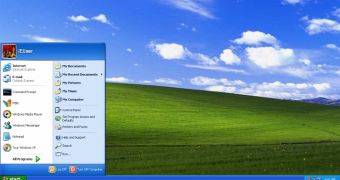Microsoft will officially discontinue Windows XP in just 10 days, which means that all those who are still running this particular platform are recommended to speed up the transition process to a newer platform in order to make sure that their data is completely secure.
Even though support is ending for Windows XP and users should move to either Windows 7 or Windows 8.1 to protect their computers, not everyone is listening to Microsoft’s message, and the operating system launched 13 years ago continues to be one of the most-used platforms these days.
Statistics provided by third-party analysts reveal that Windows XP is powering 29 percent of the desktop computers worldwide and while that’s pretty impressive for a product launches more than a decade ago, it’s also a sign that plenty of users could become vulnerable in 10 days when Microsoft pulls the plug on XP.
But what’s actually going to happen on April 8 when Windows XP reaches end of support?
First of all, the software giant will no longer release patches and security updates, which means that all vulnerabilities found in the operating system will stay unfixed. This means that cybercriminals could break into your computer very easily, even though you’re running a security application, such as an anti-virus or a firewall.
Then, some of the applications that are still offering Windows XP support will no longer work on this platform, as devs will switch the focus on newer OS versions such as Windows 8.1. Microsoft’s very own Security Essentials will also stop working on Windows XP next year, but starting April 8, no new improvements would be made to the build offering XP support.
“If you already have Microsoft Security Essentials installed, you will continue to receive AntiMalware signature updates for a limited time, but this does not mean that your PC will be secure because Microsoft will no longer be providing security updates to help protect your PC,” Microsoft says.
The good news is that so many users are still running Windows XP right now that third-party software companies across the world decided to keep their app working on it for a little longer. Plenty of anti-virus products will still be able to protect XP machines after April 8, while browsers, media players, file compression tools, and other security tools will continue to be up for grabs even though Windows XP will no longer receive updates.

 14 DAY TRIAL //
14 DAY TRIAL //